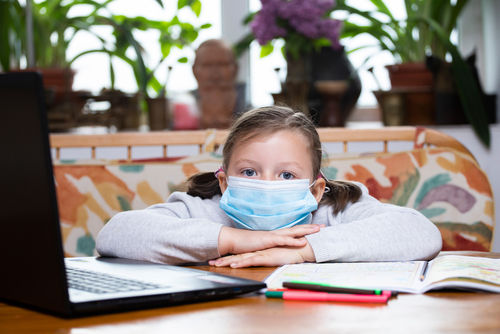
Although children can be infected with COVID-19, they seem less susceptible to the virus and show milder symptoms compared to adults. However, they are much tuned into the stress and fear around them. Children can be affected both mentally and emotionally during this pandemic the fact that schools are closed, everyone is isolating themselves at home, and there is less interaction with other kids.
Such closures deprive children access to resources they usually have in schools and involvement in social activities that keep their mind occupied. This article looks at some of the psychological effects of COVID-19 on children and things to do about them.
- Loss of Daily Structure
Although children may be concerned about their health or their parents’ health, they are also concerned with the fact that their routine is altered. Schools play a significant role in a child’s daily life since it is where they see their friends and learn new concepts in class. Since that structure went away overnight, it heightened their anxiety, as they are concerned about when they can go back to school and see their friends once again. Children with special needs such as ASD (Autism Spectrum Disorder) can become short-tempered and frustrated with their daily routines are disrupted. This can make it difficult for many children to adjust back to normal life once schools have reopened.
- Restricted Access to Peers
After the announcement of the COVID-19 pandemic, there has been a disruption or limited access to basic services at the community level. Leisure time activities have been limited, as children are not allowed to use regular playgrounds, and sports clubs. Social group activities and relations have been prohibited to prevent the spread of the virus. Given the importance of peer contact for the overall well-being of children and adolescents, these measures can have a negative impact on their mental health. Feelings of loneliness and isolation can heighten their level of anxiety and depression are uncertain of what may unfold in the future.
- Stigmatization of Infected Children and Families
Many children are understandably frightened and concerned about COVID-19 as it has claimed the lives of other children and families including their closest friends. Social stigma may interfere with how peers relate to one another once they resume their normal school routine. Affected children can be targets of emotional, verbal, and physical abuse. This can make them feel hurt, depressed, and angry when friends and other people avoid them for fear of getting infected with COVID-19. This form of stigmatization can interfere with their academic performance, self-esteem, and social interaction with other peers even if they survived the infection.
- Fear of Losing Parents or Family Members
There is an increased fear of losing parents or family members who belong to a high-risk group. Children whose parents are working in medical facilities or isolated in COVID-19 treatment centers may be worried about losing them should they succumb to the virus. The normal bereavement processes of families have also been disrupted by the pandemic in case of death. For children who have lost their parents, guardians or family members could find it difficult to adjust to their normal lives. This could lead to depression, post-traumatic stress disorder, and even suicide.
- Neglect and Child Abuse
The COVID-19 pandemic has reorganized the everyday life in families. Just like other people, all family members have to cope with the stress of social distancing and quarantine. Parents have been forced to work from home and others have lost their primary sources of income. Most parents are now home spending the entire day with their kids. While this could seem a good idea at first, it could become disruptive for a while the fact schools acted as an important source of monitoring kids. Since parents are also filled with fear and anxiety about what is going on, they may neglect the needs of their children over time and others could fall victim to child abuse.
Academic institutions, pediatricians, and child support services play a significant role in the daily lives of children. Not only do they promote their health but they also protect them by detecting if they are at risk of being harmed. Parents should be supportive of their children’s needs during the COVID-19 pandemic. They should be able to help them understand why they cannot go to school or why they cannot see their friends. Most importantly, parents should listen to the concerns of their children and reassure them that all will be well.
